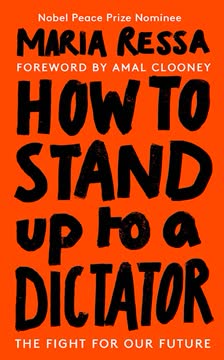Key Takeaways
1. Personal Values Forge the Strength to Fight
You don’t know who you are until you’re forced to fight for it.
Building meaning. Life's meaning isn't stumbled upon; it's built through choices, commitments, loved ones, and cherished values. Early experiences, like moving to a new country and navigating different cultures, force self-discovery and shape identity. Embracing change and the courage to fail are crucial first steps in this process.
Drawing the line. Values, like those instilled by the Princeton Honor Code, simplify decisions by clearly defining good and evil. This moral clarity helps avoid situational ethics and provides a framework for action, even when facing difficult choices or external pressure. Standing up to unfairness, though uncomfortable, is an act of creation that moves life forward.
Self-awareness is key. Understanding personal history, confronting suppressed emotions like anger, and balancing ambition with empathy are vital for integrity. The goal is to achieve an "empty mirror," seeing the world without ego obstructing the view, and controlling who you are and who you want to be by making conscious choices based on core values.
2. Journalism's Core Mission: Truth and Accountability
Hold the line; that is the journalist’s duty.
Serving the public. Journalism is a calling rooted in the search for justice and the mission to hold power accountable. In emerging democracies, a strong, transparent, and trustworthy media is essential for survival, acting as a crucial check and balance against government overreach and corruption. Without sound facts and information, democracy cannot function.
Upholding standards. Good journalism is a professional discipline, relying on rigorous standards, ethics manuals, and collective judgment, not individual "objectivity." It means leaning on evidence and incontrovertible facts, even when it causes trouble with those in power, and resisting the temptation to create false equivalences for the sake of "balance." The goal is to create a more informed citizenry, not to win arguments or popularity contests.
Protecting the public sphere. Historically, news organizations acted as gatekeepers, legally and morally accountable for the information they distributed. A wall existed between business and editorial to prevent financial interests from influencing the news. This system ensured a shared reality based on agreed-upon facts, a stark contrast to the fragmented, manipulated information ecosystem of today.
3. Social Media: From Tool for Good to Weapon Against Democracy
The very platforms that deliver the news we need are biased against facts.
Early optimism. Initially, social media platforms like Facebook offered exciting possibilities for civic engagement and social change. They enabled crowdsourcing, community building, and rapid mobilization, playing a significant role in events like the Arab Spring and voter registration drives in the Philippines. There was genuine hope for their potential to strengthen democracy.
Shifting dynamics. However, the inherent design and business models of these platforms began to reveal a darker side. Prioritizing engagement and growth above all else, algorithms favored emotional, sensational content, conditioning users to prefer speed and virality over depth and accuracy. This fundamentally altered the information ecosystem, making lies spread faster and farther than facts.
Eroding foundations. The platforms' abdication of traditional gatekeeping responsibilities, coupled with their design that fragments reality into individual feeds, destroyed the shared factual basis necessary for democratic discourse. This shift empowered those willing to manipulate the system, paving the way for the rise of digital authoritarians and the insidious mass manipulation seen globally.
4. State-Sponsored Disinformation Manipulates Reality and Silences Critics
Lies repeated over and over become facts in this online ecosystem.
Weaponizing the internet. Governments and political actors quickly learned to exploit social media algorithms and networks for propaganda and control. Tactics evolved from simple online campaigns to sophisticated information operations involving fake accounts, bots, and paid influencers who spread half-truths and outright lies to manipulate public opinion and create a false sense of grassroots support (astroturfing).
Targeting truth-tellers. Independent journalists and news organizations became prime targets of these coordinated attacks. Online mobs, often incited by government-linked accounts, would barrage critics with hate speech, threats, and false accusations, creating a chilling effect designed to silence dissent and erode credibility. This systematic harassment aimed to redefine reality and normalize abusive behavior.
Global playbook. The tactics pioneered and refined in countries like the Philippines, with its high social media penetration and weak regulatory environment, became a playbook for authoritarians worldwide. By overwhelming facts with a firehose of lies and emotional content, these operations successfully polarized societies and shifted public perception on critical issues, demonstrating the devastating power of networked disinformation.
5. The Law Becomes a Weapon to Harass and Intimidate
This isn’t just about me, and it’s not just about Rappler. The message that the government is sending is very clear, and someone actually told our reporter this last night: ‘Be silent, or you’re next.’
Weaponization of lawfare. When online attacks and propaganda failed to silence independent media, governments resorted to weaponizing the legal system. Arbitrary charges, often based on flimsy or nonexistent legal grounds, were filed to drain resources, intimidate journalists, and create a narrative of criminality. This included:
- Revoking licenses to operate based on technicalities
- Filing numerous criminal cases (cyberlibel, tax evasion, securities fraud)
- Issuing arrest warrants and denying travel requests
- Using state resources to pressure lawyers and directors
Undermining rule of law. These legal attacks were not about justice but about harassment and control. By bending and breaking legal procedures, the government demonstrated its willingness to abuse power and erode the rule of law itself. The goal was to make examples of high-profile targets, sending a clear message to others who might dare to challenge authority.
Psychological toll. The constant threat of arrest, the financial burden of legal fees, and the uncertainty of the future create immense psychological pressure. However, experiencing the pettiness and injustice firsthand can also strengthen resolve, highlighting the importance of fighting back against a system that seeks to strip away fundamental rights.
6. Silence Is Complicity; Courage Is Essential for Resistance
Silence is complicity.
Choosing to speak. In the face of intimidation and attacks, remaining silent or compliant allows abuses to continue unchecked. While speaking up carries risks, it is an act of creation that challenges unfairness and pushes for change. The decision to confront bullies, whether in childhood or when facing state power, requires courage and a refusal to consent through silence.
Holding the line. The #HoldTheLine movement embodies the commitment to defend fundamental rights enshrined in the Constitution. It means refusing to be intimidated into backing down, exposing every abusive step taken by those in power, and standing firm on principles even when facing legal or physical threats. It is a collective act of resistance against attempts to erode democracy.
Finding strength. Courage isn't the absence of fear, but the choice to act despite it. Facing fears head-on, rather than running from them, provides the chance to conquer them. In times of crisis, leaning on core values, trusting in the goodness of others, and finding strength in community are vital for navigating uncertainty and maintaining the will to fight for what is right.
7. Fighting Back Requires Collaboration and Building Communities
Collaborate, collaborate, collaborate.
Building a team. No one can stand up to authoritarianism alone. Creating strong teams based on shared values, trust, and complementary skills is essential for resilience. The Rappler team, forged in crisis, exemplifies how collective intelligence and mutual support enable individuals to be more powerful together than the sum of their parts.
Communities of action. Moving beyond traditional journalism, the focus shifts to building communities that use information for civic engagement and social change. Initiatives like #FactsFirstPH demonstrate a whole-of-society approach, bringing together diverse groups—media, civil society, lawyers, researchers—to collectively fight disinformation and demand accountability.
Strength in numbers. Collaboration amplifies impact and provides a defense against targeted attacks. By linking arms and sharing resources, groups can counter the divide-and-conquer tactics of authoritarians and tech platforms. This collaborative mesh strengthens the distribution of facts, supports those under attack, and builds a collective defense for democracy.
8. Technology Platforms Prioritize Profit Over Public Safety
Violence has made Facebook rich.
Surveillance capitalism. The business model of major technology platforms, particularly Facebook, is based on extracting personal data ("primary extraction") and using it to manipulate user behavior for profit. This "surveillance capitalism" treats human lives as commodities, prioritizing growth and revenue above all else, including public safety and democratic integrity.
Algorithmic harms. Platform algorithms, designed to maximize engagement, inadvertently or intentionally amplify emotional, divisive, and extremist content. Features like "friends of friends" recommendations can radicalize users by pushing them into echo chambers. Internal research has shown that these systems "grow the problem," yet companies have failed to act decisively for fear of impacting profits or alienating powerful groups.
Lack of accountability. Despite mounting evidence of their harmful impact on societies worldwide, tech companies largely operate with impunity. They resist regulation, engage in extensive lobbying, and control access to data that could reveal the full extent of the problem. Their power to shape the information ecosystem and influence behavior poses a grave threat to democracies.
9. The Philippines Serves as a Global Warning and Testing Ground
Our problems are fast becoming your problems.
Petri dish for tactics. The Philippines, with its high internet penetration, active social media use, and weak regulatory environment, became an ideal testing ground for disinformation tactics. Methods refined there, from astroturfing to coordinated online attacks and the weaponization of social media for political gain, were later exported and replicated in other democracies globally.
Early warning signals. Events in the Philippines, such as the systematic use of social media in the 2016 elections and the subsequent crackdown on independent media, provided early warnings of the threats facing other nations. The country's experience demonstrated how quickly a democracy could be undermined when technology platforms are exploited by authoritarian-leaning leaders.
Global relevance. The fight for facts and democracy in the Philippines is not isolated; it is part of a global struggle against the rise of digital authoritarians and the corrosive impact of surveillance capitalism. Understanding the tactics used and the consequences faced in the Philippines offers crucial lessons and a roadmap for how other countries can identify and combat similar threats.
10. Embrace Fear and Believe in the Good to Survive and Resist
Don’t become a monster to fight a monster.
Facing fear. Living under constant threat and facing legal battles designed to intimidate is terrifying. However, allowing fear to dictate actions means giving power to the oppressor. Embracing fear, acknowledging vulnerability, and pushing through it are necessary steps to maintain agency and continue the fight.
Maintaining integrity. The goal of harassment is often to make the target act like the attacker – to lie, to break the law, to become corrupt. Resisting this pressure and choosing to live by core values, even when it is difficult and costly, is a powerful act of defiance. Refusing to become a criminal to fight a criminal preserves moral authority.
Finding hope. Despite witnessing immense cruelty and injustice, maintaining faith in the goodness of human nature is vital. Unexpected acts of kindness, the support of friends and strangers, and the courage of others fighting similar battles provide the strength and inspiration needed to persevere. Hope is found in collective action and the belief that a better future is possible.
11. Memory Fights Forgetting: History Can Be Rewritten by Lies
The struggle of man against power,” wrote Milan Kundera, “is the struggle of memory against forgetting.
Rewriting history. Disinformation networks actively work to distort historical narratives, downplay past abuses, and rehabilitate the image of authoritarian figures. By flooding social media with lies and propaganda, they create echo chambers where false histories are accepted as truth, particularly targeting younger generations who may lack direct memory of past events.
The danger of forgetting. When a society forgets its history, it becomes vulnerable to repeating past mistakes. The return of a dictator's son to power, fueled by a campaign that whitewashed his family's past, is a stark example of how the struggle against forgetting is central to the fight for democracy. Memory is a form of resistance against those who seek to control the present by manipulating the past.
Fighting for facts. Combating the rewriting of history requires a concerted effort to preserve and disseminate factual accounts. Journalism, research, and collective action are essential tools in this fight. By documenting abuses, exposing lies, and ensuring that facts reach the public, individuals and groups can push back against the forces that seek to erase memory and pave the way for renewed authoritarianism.
Last updated:
FAQ
What’s How to Stand Up to a Dictator by Maria Ressa about?
- Personal and political memoir: The book traces Maria Ressa’s journey from her childhood in the Philippines and the US to her career as a journalist and cofounder of Rappler, set against the backdrop of the Philippines’ political turmoil.
- Fight for democracy: It details her battle for press freedom under President Duterte’s authoritarian regime, highlighting the erosion of democratic institutions and the rise of disinformation.
- Weaponization of technology: Ressa explores how social media, especially Facebook, has been manipulated to spread propaganda and silence dissent, with global implications.
- Call to action: The narrative urges readers to defend truth, facts, and democracy, emphasizing the importance of collective action and resilience.
Why should I read How to Stand Up to a Dictator by Maria Ressa?
- Firsthand account of authoritarianism: The book offers a unique insider’s perspective on how modern dictatorships use technology and legal systems to undermine democracy.
- Inspiration and courage: Ressa’s story is one of resilience, hope, and moral courage, providing motivation for readers to stand up for truth and justice.
- Global relevance: The themes and lessons extend beyond the Philippines, offering insights into the threats facing democracies worldwide in the digital age.
- Practical strategies: Readers gain actionable frameworks for combating disinformation, protecting journalism, and fostering civic engagement.
What are the key takeaways from How to Stand Up to a Dictator by Maria Ressa?
- Disinformation as a tool: Authoritarian regimes exploit social media algorithms and legal systems to spread propaganda and silence critics, eroding democracy “by a thousand cuts.”
- Importance of values: Ressa stresses honesty, vulnerability, and empathy, warning against becoming what you fight against.
- Power of collaboration: Building coalitions across journalism, technology, and civil society is essential to defend truth and democracy.
- Courage in adversity: Embracing fear and standing firm are vital for journalists and citizens resisting authoritarianism.
How does Maria Ressa in How to Stand Up to a Dictator describe the weaponization of social media and Facebook’s role?
- Algorithmic amplification: Facebook’s algorithms prioritize sensational and divisive content, amplifying lies and outrage over facts.
- State-sponsored disinformation: The Duterte administration coordinated online influencers and troll farms to attack critics and independent media, with Facebook enabling mass distribution.
- Suppression of journalism: Facebook’s deprioritization of news content weakened traditional media, allowing disinformation to dominate.
- Lack of accountability: Despite warnings, Facebook failed to act decisively against coordinated attacks and disinformation campaigns.
What does Maria Ressa mean by “weaponization of the law” and “death by a thousand cuts” in How to Stand Up to a Dictator?
- Weaponization of the law: Legal systems are used to harass, intimidate, and silence critics under the guise of legality, as seen in the use of cyberlibel and other charges against Ressa and Rappler.
- Death by a thousand cuts: Democracy is eroded through numerous small but cumulative attacks—legal cases, online harassment, media bans, and propaganda.
- Climate of fear: These tactics create self-censorship and weaken opposition, signaling a collapse of checks and balances.
- Global warning: Ressa highlights that these methods are not unique to the Philippines and threaten democracies worldwide.
What personal and professional challenges did Maria Ressa face according to How to Stand Up to a Dictator?
- Multiple legal battles: Ressa faced numerous criminal charges, arrests, and investigations, widely seen as politically motivated attempts to silence her and Rappler.
- Government harassment: She endured bans, public vilification, and misogynistic online attacks orchestrated by the Duterte administration.
- Resilience and support: Ressa relied on her cofounders, legal team, and international allies for support, using fear as fuel to persist.
- Personal growth: She shares her journey of embracing vulnerability, honesty, and courage in the face of adversity.
How did Maria Ressa and her team build Rappler, and what was its mission in How to Stand Up to a Dictator?
- Founding principles: Rappler was established by four women committed to independent, ethical journalism focused on truth and justice.
- Innovative journalism: The team embraced multimedia, live streaming, and social media to engage communities and hold power accountable.
- Community engagement: Rappler’s mission was to build communities of action, combining investigative reporting with technology to inspire social change.
- Editorial independence: The founders insisted on maintaining both editorial and commercial independence to protect their work from external pressures.
What role did Rappler play in the Philippine elections, as described in How to Stand Up to a Dictator?
- Citizen journalism: Rappler pioneered crowdsourced programs like “Boto Patrollers” to monitor elections and empower voters.
- Transparency and innovation: They used real-time data visualization and social media to increase transparency and public trust in election results.
- Exposing corruption: Rappler reported on election violence and corruption, including the Maguindanao massacre, informing and mobilizing the public.
- Target of attacks: Their critical coverage made them a target for coordinated online harassment and government intimidation.
What strategies and methods does Maria Ressa recommend in How to Stand Up to a Dictator for fighting disinformation and defending democracy?
- Building coalitions: Ressa advocates for collective efforts like the #FactsFirstPH coalition, uniting journalists, civil society, and legal experts to amplify factual information.
- Leveraging technology: Rappler developed tools such as Sharktank and Lighthouse to monitor disinformation networks and protect public discourse.
- Demanding accountability: She calls for legislation, transparency, and enforcement to regulate tech companies and safeguard press freedom.
- International cooperation: Ressa emphasizes the need for cross-border collaboration and legal reforms to uphold democratic values online.
How does Maria Ressa in How to Stand Up to a Dictator explain the role and challenges of journalism in democracy?
- First line of defense: Free, independent journalism is essential for holding power accountable and informing citizens, forming the backbone of democracy.
- Digital disruption: The shift to social media has disrupted traditional journalism, with algorithms favoring sensationalism and misinformation.
- Threats to journalists: Reporters face physical danger, legal harassment, and online abuse, especially women journalists.
- Need for reinvention: Ressa calls for new business models, legal protections, and community engagement to sustain journalism in the digital age.
What are the core values and lessons about journalism that Maria Ressa shares in How to Stand Up to a Dictator?
- Golden Rule and Honor Code: Ressa emphasizes personal values, honesty, and ethical boundaries, inspired by her education and Princeton’s Honor Code.
- Mission of journalism: She defines journalism as a calling to hold power accountable and provide facts necessary for democracy, rejecting false balance.
- Trust and vulnerability: Good journalism requires trust between reporters, sources, and the public, and the courage to face threats.
- Adapting to change: Journalists must embrace new technologies while remaining vigilant about their potential for misuse.
What are the most powerful quotes from How to Stand Up to a Dictator by Maria Ressa and what do they mean?
- “Silence is complicity.” This quote warns that failing to speak out against injustice enables authoritarianism to thrive, urging active defense of truth and democracy.
- “We are Rappler, and we will hold the line.” A rallying cry for resilience and collective resistance, emphasizing steadfastness in upholding journalistic principles.
- “You can’t do it alone. You have to create a team, strengthen your area of influence. Then connect the bright spots and weave a mesh together.” This highlights the importance of collaboration and building coalitions to confront powerful adversaries.
- “I will not become a criminal to fight a criminal. I will not become a monster to fight a monster.” Ressa stresses the importance of maintaining integrity and not adopting the tactics of those you oppose.
Review Summary
How to Stand Up to a Dictator receives overwhelmingly positive reviews for its compelling narrative and crucial message about defending democracy in the digital age. Readers praise Ressa's courage, insights into social media manipulation, and call to action against authoritarianism. Many find the book inspirational and eye-opening, particularly regarding the fragility of democracy and the power of disinformation. Some critics note occasional self-aggrandizement and dense technical sections, but overall, the book is hailed as essential reading for understanding modern threats to freedom of expression and democratic institutions.
Similar Books
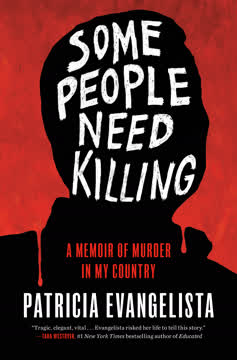

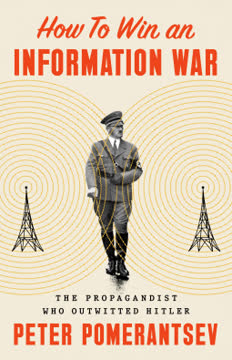
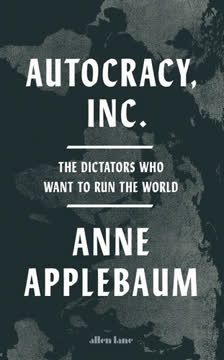

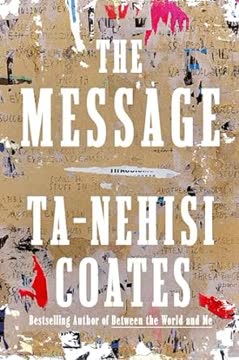
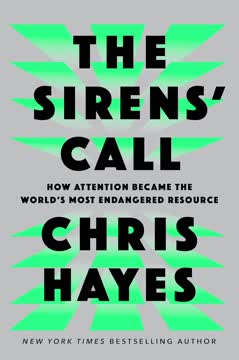
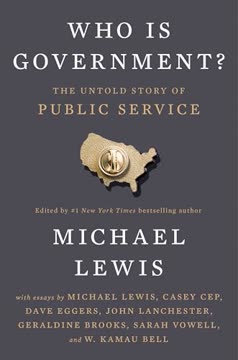
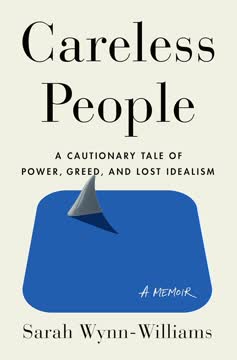
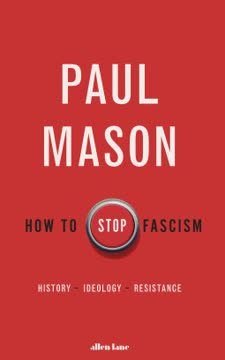
Download PDF
Download EPUB
.epub digital book format is ideal for reading ebooks on phones, tablets, and e-readers.
